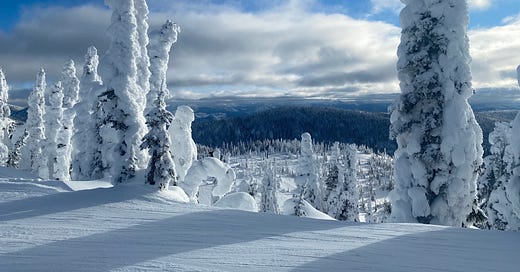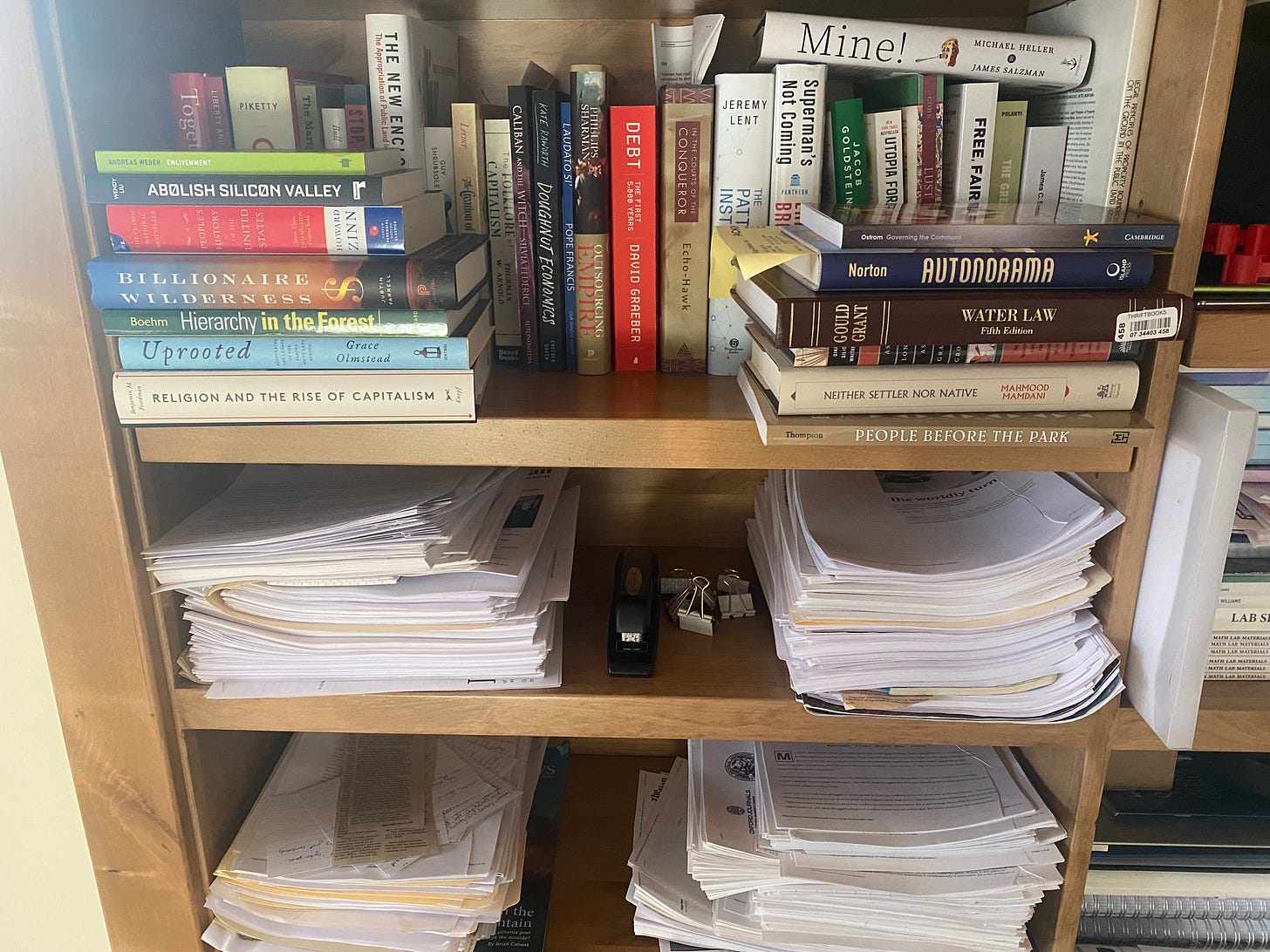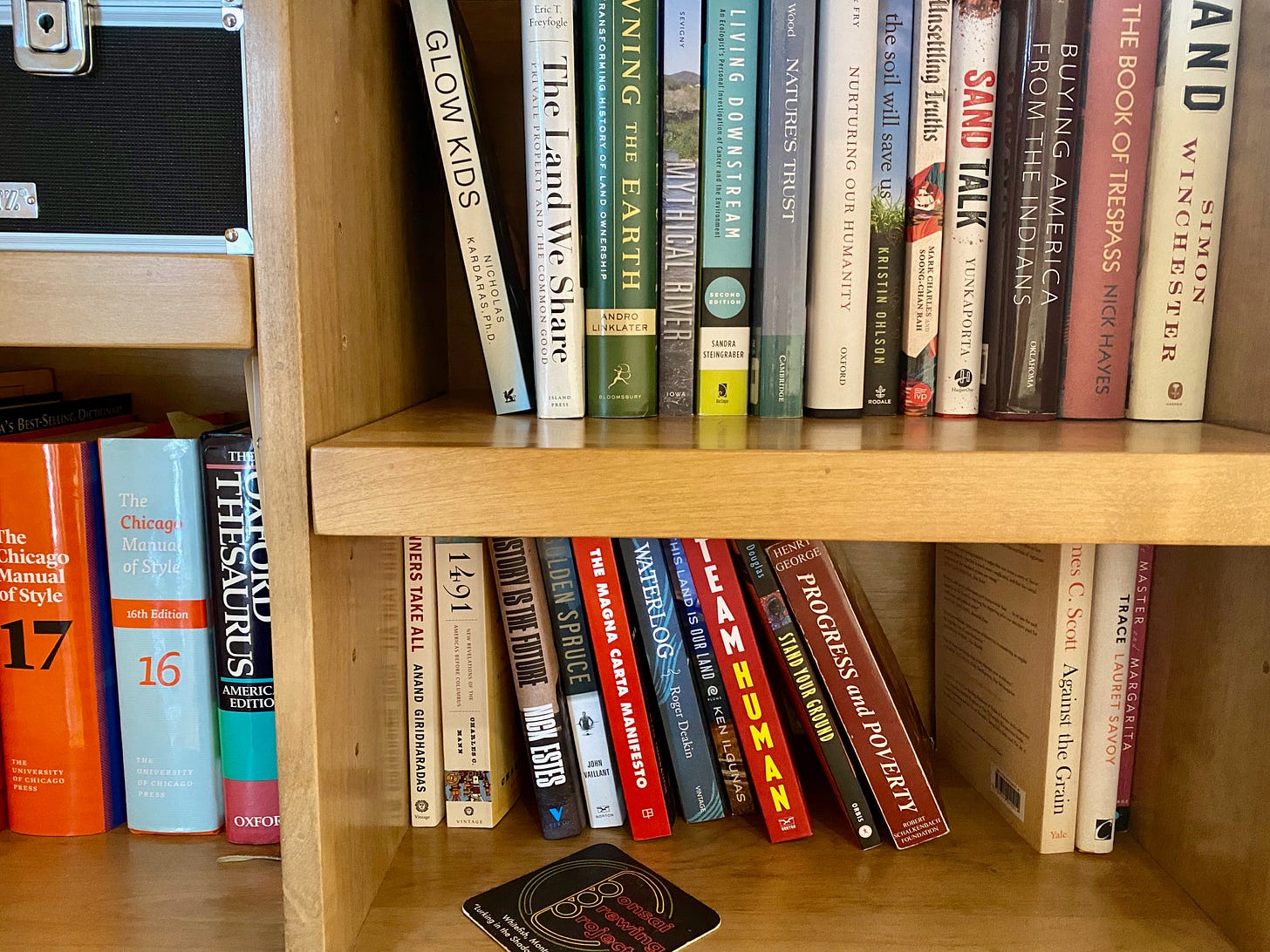“Don’t we have an obligation, a responsibility, to our planetary future and the generations of humans and other species to come?” ―The Good Ancestor: How to Think Long-Term in a Short-Term World, Roman Krznaric
When I started this newsletter, I gave myself a year to make sure I could keep it up before thinking about going to a paid version. A year came and went last August, but after starting a copy editing contract in May, I put off thinking about what to do with the newsletter in the long run. I learned years ago that I can write and copy edit but I can’t write well and copy edit, at least not well and frequently, much less consistently.
The contract will be finished in June, and my plan for this newsletter will be to offer a paid version after that, when I can devote more time to the writing—researching in particular, as well as possibly hiring an editor and fact-checker, which is what I do for my Medium articles.
I’m not totally sure what form the paid version will take, but am open to suggestions on how to mix free versus paid offerings. All of you who do me the honor of reading this, and commenting, whether here on via private email or even in person, are people whose opinions and ideas I’ve learned to value as we’ve gotten to know one another a bit.
The ownership-related TBR pile, with the articles-and-essays accumulation of research below.
My half-formed idea is that, in addition to what I currently write on here, I will also be sharing my unpublished book with you, one chapter at a time and possibly even starting with the introductory section of the original book proposal. The book as envisioned will have an introduction followed by nine chapters on the subject of ownership and the commons. I’m unsure exactly how that will translate to an online format. Like my first book A Walking Life, this book’s chapters run around 10,000 words (or will when I’ve written them). For comparison, the non-walking composition essays I write for this newsletter hover around 3000 (the most recent on whiteness-as-property was an outlier at 4300). Ten thousand words is way too much to throw on a screen at once, so I’ll try to think of ways to break the chapters up into more readable portions at reasonable interludes.
It will be an interesting process for me. Writing a book is nothing like writing essays and articles. It happens in your own space, and between you and your editor, over a much longer timeframe without anybody really knowing what you’re doing. (Mine took two years before it moved onto several months of layout, copy editing, and proofreading, which is fairly average, though some people are able to produce work much more quickly.) Putting out a chapter at a time means I can’t wait until the whole thing is done and see if it all hangs together.
But I’ll do my best to bring it up to a high standard. Which starts, as it always does for me, with research. I’ve got a much better handle on, for example, land ownership (though I’m currently reading David Wengrow’s and David Graeber’s The Dawn of Everything and it’s forcing some very different questions on that point) . . .
. . . than on, say, serfdom in Russia and throughout Europe, and ownership of women. A lot to learn, and I hope you’ll find the journey just as thought-provoking as I do.
I’ll give reminders of the shift-to-paid in the coming months, and of course if you want access to the paid version but can’t or don’t want to pay, just email me when the time comes and I’ll make it happen, no questions asked. We can even use a code word. How about “tribble”? (There will, I promise, be science fiction references in the book. I find The Expanse TV show, for example, an invaluable mirror for property and resource ownership.)







This piece feels very much like the breath before the plunge. To pull a line from The Matrix, very exciting times to be sure!
Of course I'll subscribe!
I don't do anything different for paid or free subscribers. My approach has been if my BS is worth something to you and you can afford it, pay. If not, that's fine too. Maybe it's shitty but I can't handle the additional complications of maintaining two versions, which will probably ultimate lead to the newsletter's demise. I'll die poor inside my truck at the end of a dead end road someday regardless, I think.
But man, am I ever intimidated by all the references I've been seeing by people I subscribe to mentioning editors and fact checkers. Of course my garbage could use both, but I'd be operating so deep in the red to accommodate it that I don't know how it's even possible. What a nightmare.
Hence, dead end road....
And as for book publishing, I find as mine languishes at the publisher knowing that it is still likely more than a year from seeing the light of day, and no idea when it will move forward, after the immense relief of turning it in I feel like it's behind me and I don't even care anymore. Hopefully that will change.
Dead end road....